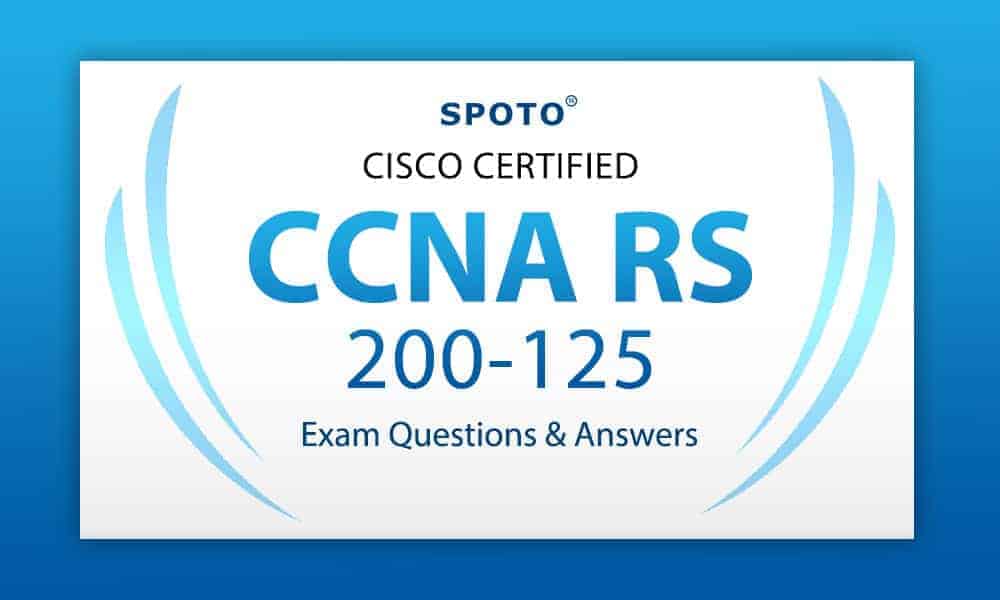The Difference Between CCNA R&S and CCNA Collaboration

Table of Contents
In order to understand the difference between both of these certifications, let’s first have an overview of both.
The CCNA Routing and Switching are considered to be an excellent starting point for your IT career. The CCNA R&S is extraordinarily popular among the learners and is also considered to be highly sought after by the IT industry. This certification is going to be validating your ability to install, configure, operate, and troubleshoot of medium-size routed as well as switched networks. Typically, the CCNA R&S would be qualifying you for the job roles which would include network technician, systems administrator, network engineer, and much more.
Cisco Certified Network Associate Routing and Switching or CCNA R&S Overview
The CCNA Routing and Switching certification are designed for entry-level networking professionals. The CCNA R&S certification would be made up of two exams, both of which are covered by the SPOTO training Institute:• Cisco CCENT/CCNA ICND1 100-105
• Cisco CCNA ICND2 200-105
In order to earn your CCNA R&S, you would have to complete the ICND1 exam first, which results in the Cisco Certified Entry-level Network Technician or CCENT certification. The ICND1 exam would be testing your knowledge and skills in order to successfully install, operate, and troubleshoot a small branch office network, which includes the topics like the operation of IP data networks, , IP routing technologies, LAN switching technologies, IPv6, IP services (DHCP, NAT, ACLs), basic troubleshooting, and network device security.
The second exam for the CCNA R&S is the ICND2 which would be testing your skills and knowledge in order to successfully install, operate, and troubleshoot a small as well as medium sized enterprise network of branch, which would be including topics on LAN switching technologies, IP services (FHRP, Syslog, SNMP v2 and v3), IP routing technologies, troubleshooting, and WAN technologies.
The Cisco Certified Network Associate Collaboration or Cisco CCNA Collaboration certification is a blend of networking, video, and voice, skills and knowledge. The Collaboration certification which would be representing a merger of three previously separate certification pathways: Routing and Switching, Voice, and Video. With the emergence of a mobile workforce, the need for collaboration skills and expertise has ascended. The CCNA Collaboration is the first step in mastering solutions of Cisco’s collaboration. The CCNA Collaboration certification is typically associated with the roles that would be including network video administrator, IP network engineer, IP telephony (VoIP) engineer, collaboration tools engineer, and voice, unified communications (UC), or communications engineer.
Cisco Certified Networking Associate Collaboration Overview
CCNA Collaboration certification would be designed for IT professionals who are going to specialize in IP telephony, networking, and video engineering. The CCNA Collaboration is a role-focused certification intended to validate the skills of learners in meeting the ever-evolving business demands in collaboration and video skills. Though the CCNA Collaboration certification requires no formal prerequisites, some experience in networking, Cisco VoIP, video, and teleconferencing is recommended.
The CCNA Collaboration certification program focuses on the convergence of voice, video, data, and mobile applications in Cisco collaboration solutions. It equips network engineers, IP telephony professionals, and IP network engineers with the skills needed to implement Cisco's collaboration technologies effectively. In today's interconnected world, businesses rely on collaboration solutions to facilitate communication and enhance productivity. CCNA Collaboration certification is designed to meet the increasing demand for professionals who can work with voice, video, and data technologies seamlessly.
This certification program covers a wide range of topics, including implementing Cisco collaboration endpoints, codecs, Cisco IOS XE and Cisco IOS XE gateway and media resources, Cisco Unity Connection, Cisco Unified IM and Presence, and more. It ensures that candidates have the knowledge and skills required to support Cisco collaboration solutions effectively. By earning CCNA Collaboration certification, professionals position themselves as valuable assets in the industry, ready to tackle the challenges of modern collaboration technologies. It's a testament to their ability to work in line with the convergence of voice, video, data, and mobile applications, providing businesses with the communication solutions they need to thrive.
The CCNA Collaboration certification would be made up of two exams, both of which are covered by training provided by the SPOTO:
• Cisco CCNA Collaboration 210-060 CICD
• Cisco CCNA Collaboration 210-065
• CIVND1
• CIVND2
For engineers who want to develop collaboration and video skills, the CCNA Collaboration exam is considered to be a certification path that would be evolved from Cisco’s Voice and Video certifications, which would have been officially retired.
Both the certification holds quite a unique importance at their own place. You would have to check it out that which would suit your knowledge. The training of both the certification could be gain through the courses which are provided by the SPOTO institute. They provide you with the best training courses to help you out for clearing any of the Cisco Related Certification. Also, you can pass the Cisco Certification with certification programs.